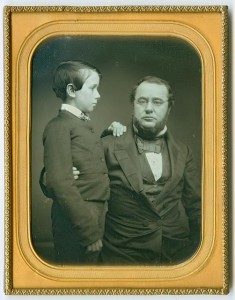See the 57th Article of War
It’s been a long time since I’ve copied anything from JASPER, The New-York Times’ antebellum Charleston correspondent. After the surrender of Fort Sumter JASPER escaped north to write again another day. In this piece he makes Secretary of War Stanton out to be more tender than his public demeanor would suggest and questions the federal policy of controlling press reports on military movements.
From The New-York Times April 4, 1862:
OUR WASHINGTON CORRESPONDENCE.; THE HEART OF THE SECRETARY OF WAR INJUSTICE OF THE FIFTY-SEVENTH ARTICLE OF WAR.
WASHINGTON, Friday, March 28, 1862.
An incident has recently transpired which brings out in bold relief a most touching instance of delicacy in one whom the public look upon as the grim, stern, and even Draconic, Secretary of War, Mr. STANTON. It shows that deep down in his heart there wells up a fountain of almost feminine tenderness. About two weeks since a private in one of the New-York regiments was killed while on picket duty at our outposts on the Potomac. He was a young man, beloved by his companions, and the sole hope of a widowed mother. When she heard of his death she hurried on here from Rochester, hoping, through the aid of the Government, to have her son’s remains sent to his native place. She found that it would cost her quite a heavy sum, and far more than her slender purse would permit. Disappointed, and with her cup of sorrow now filled to repletion, she was about to return unsuccessful, when an old army officer, Capt. MAGUIRE, volunteered to aid her through a letter to the Secretary of War. Mr. STANTON was so impressed with her story that he immediately sent an order to the proper officer, with instructions to have the dead soldier disinterred, properly coffined, and forwarded, with every memento of respect, to his home, free of charge, to the devoted mother who had offered her all on the altar of her country.
When you hear from me again it will be from the tented field — from a corps d’armee marquee. I should like to tell you something about my own particular corps, but I look with holy horror upon the 57th Article of War, and religiously refrain. Let it be observed, however, that it is not in consonance with the spirit of our institutions to refuse to allow the loyal people, who are spending their blood and treasure like water in the cause, to know the facts about our preparations, while the friends of the C.S.A. — to be counted by the scores in every street in Washington, and in many cases still holding office under the Union Government — remit almost daily, to the would-be destroyers of the Union, all the facts they wish them to know. It is hardly worthy of a great power to so dread the publication of facts. We ought to feel that we are now so strong, and that the South is so contemptibly weak and utterly unable to cope with us, that we might as well let them know the full and entire strength of our armies. They would then see the utter hopelessness of resistance, and would gladly lay down their arms, in expectancy of a general amnesty. So think, and so will the mass of the people echo, the sentiment of. JASPER.

